The Possibilities and Challenges of Building a Participatory Church
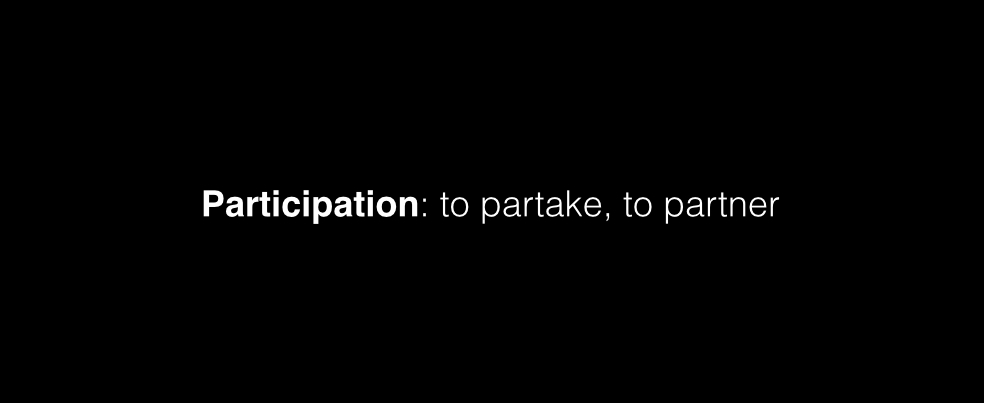
I love the word participation. It’s stem means “taking part” or to “partner.” The Quaker meeting of which I am the ‘released minister,’ Camas Friends, strives to be a participatory church. A partnering church. A church that welcomes the contributions, leadership, insights, resources, personalities and concerns of those who are in the meeting.
As I mentioned in my previous post, we live in a participatory culture. And the church would do well to learn from it. What was once reflective of the one-directional movement of consumer culture, there is much more interplay between producer and consumer today.
Therefore, Participatory culture is active, engaged, creative. It is evidenced in punk rock’s zine movement, it is evidenced in fandom of all fandom of all kinds, and it can be found in the DIY impulse of “homesteaders” and the like.
And yes, there drawbacks and challenges to participatory culture. The author has less control over the outcome of her product. Copyright loses meaning or has its meaning challenged. Things may lose their sheen. They may not be quite as polished.
As Nadia Bolz Weber says, her church is “Pro-Participation and Anti-Excellence.” I think you’re probably either all about being polished or you’re all about participation, you either seek to maintain control or you work to share it and spread it around.
Remix and Quaker Participation
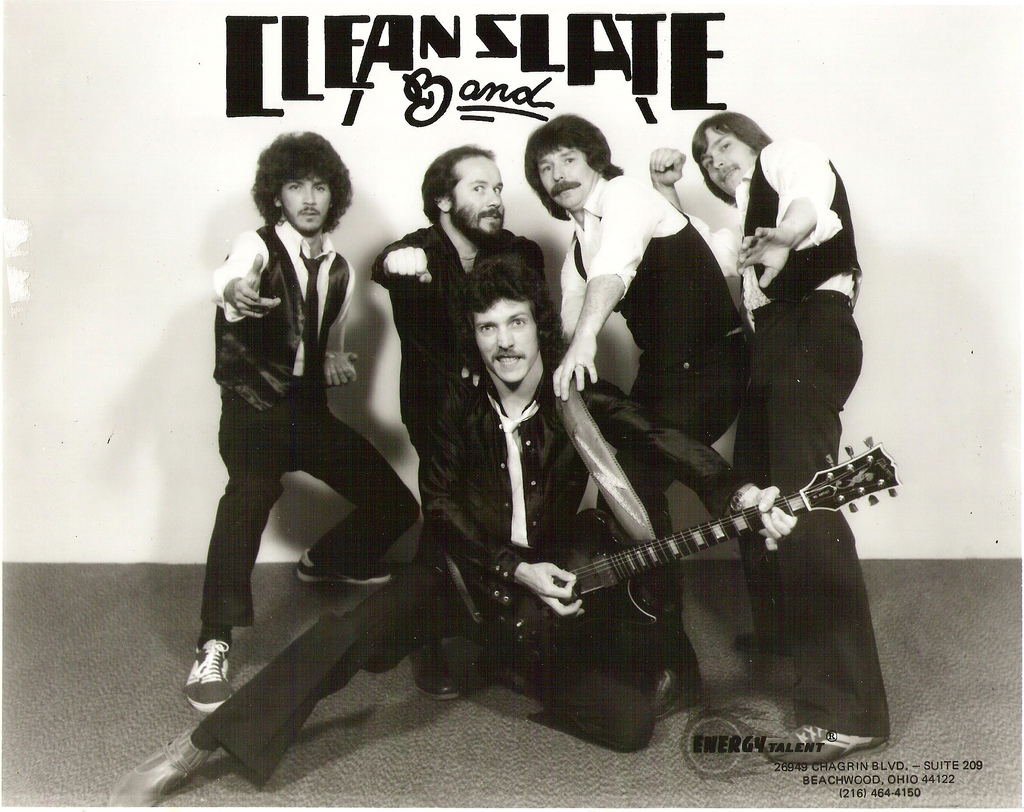
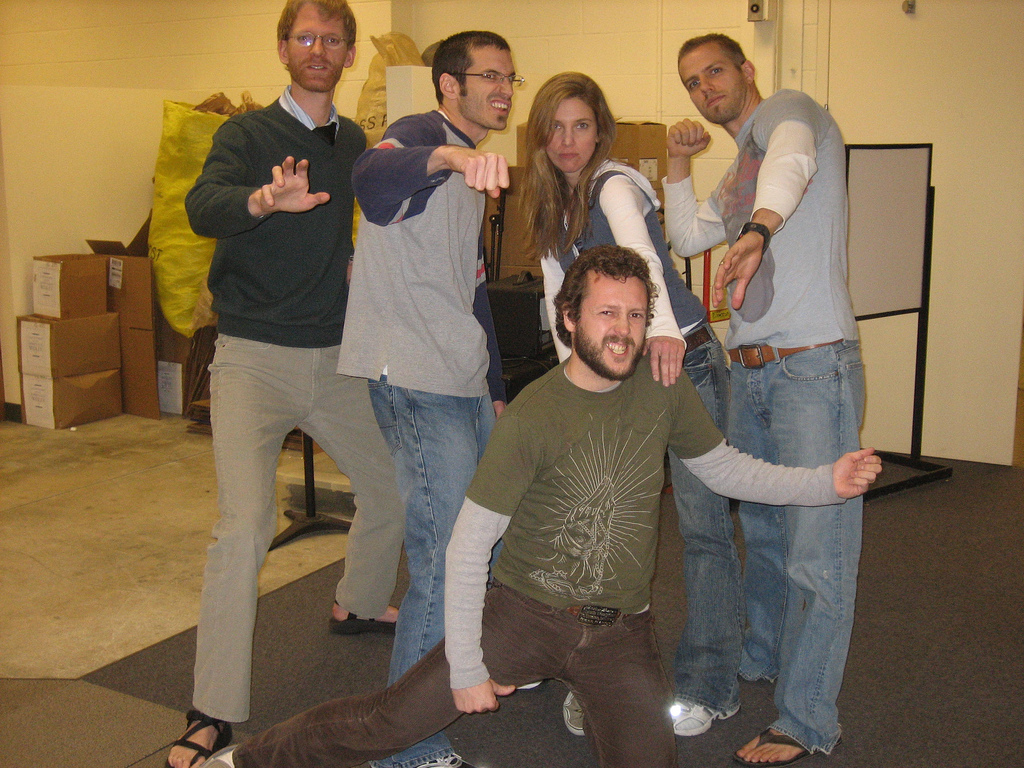
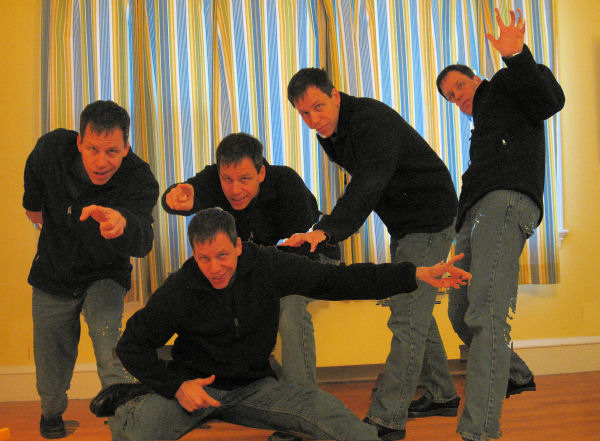
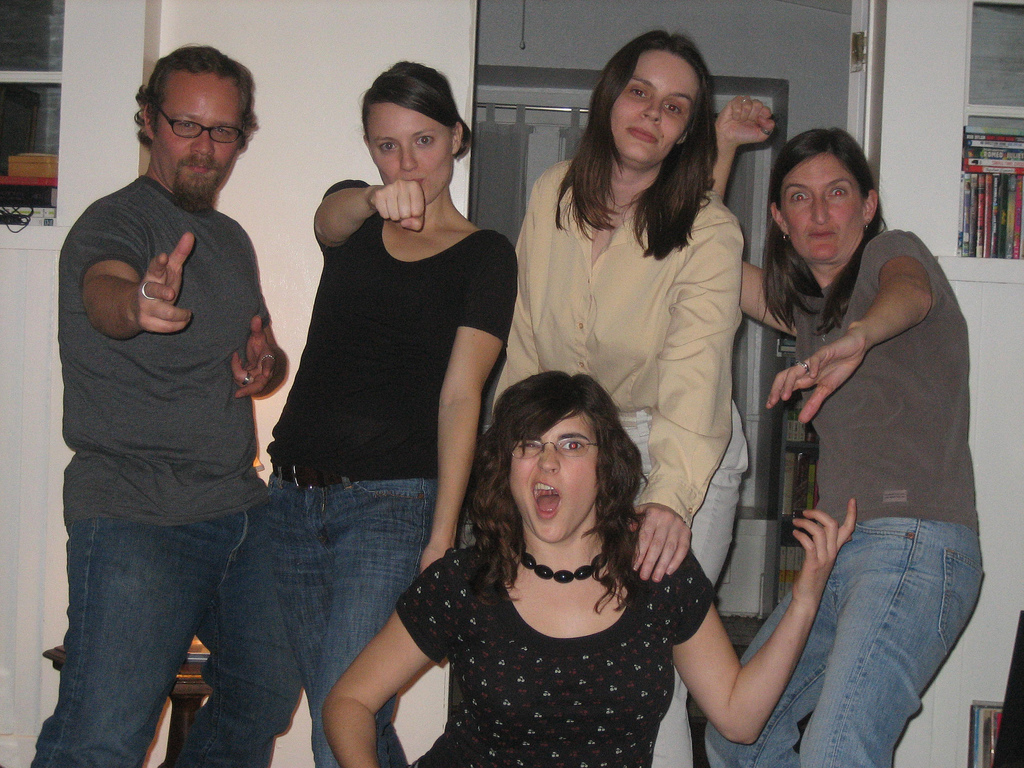
A number of years ago I came across an old photo of my dad’s band, Clean Slate. It’s a pretty amazing picture for a lot of reasons and so I scanned it and uploaded it to my blog. I invited friends who had a digital camera to get some friends and stand in the “clean slate” pose and then upload the picture. It didn’t go viral exactly, but a few friends got in on the fun. We worked off the basic pose and added some of our own flair.
Participatory culture is about taking what is already there and adding your own flair to it. Making it your own, exercising a kind of shared ownership.
To me this is exactly the heart and soul of the Quaker tradition. At it’s core, the Quaker tradition is participatory. It is a movement within Christianity meant to “remix” Christianity – to take what is already there and make it authentically your own. No one else’s words will do, no creed will work, not rituals or forms can – on their own – be enough. You must step into the story yourself and because a part of the story line the way you might if you were an improv actor.
I am not saying that Quakers have the corner market on participation, or that there aren’t ways of thinking about participatory culture within more liturgical churches – because I do believe there are – but what I am suggesting is that at the heart of Quakerism, the impulse is to encourage participation rather than consumption. From the earliest points of the Quaker movement, there was a constant striping away of beliefs, practices, roles and positions within the church that obstructed a full participation in the community and in one’s own direct encounter with Jesus Christ. What matters to Quaker spirituality is an active and authentic faith, one that is rooted in our taking responsibility for our own well-being and spiritual development. The goal of this life is to listen carefully to the Inward Teacher and to respond in the world out of love.
This is at the heart of one of early sayings,
“Let your life speak.”
Challenges of Building a Participatory Church
There are at least three challenges to the participatory community as I see it.
The first is in teaching it. We are enculturated into a way of life that is consumptive, we even have toothbrushes that brush our teeth for us. When we show up in a Quaker meeting, or another church that fosters participation and realize that there is an entirely different level of engagement it can be a challenge. The Quaker “If you see something that needs done, do it” rides against our consumeristic sensibility “I see something that needs done and you do something about it for me.” In this latter mindset, the church becomes a vending machine for my spiritual goods and is dispensable whenever it comes to a point where I perceive what it offers is not worth consuming.
The second issue is inviting it. Quaker meetings, and other participatory communities, are at their best, pretty welcoming and safe spaces. After all this is what participation is partly about: creating spaces in which everyone is not only welcome, but whose contributions are necessary. There’s “No Dogma, No Drama,” as we used to say before our monthly GodPub meetings. And okay, there is sometimes some implicit dogma, and sometimes plenty of drama, but the saying is in my experience mostly accurate and certainly a worthy goal. I personally love this about Quakerism. I love that my meeting is a home for spiritual refugees, people drifting to the left of Evangelicalism, people not sure what they believe, and people who have grown up in the church but need something new and challenging. I like to think of it as a kind of statue of liberty of Christian communities. BUT when there’s too much safety, it’s easy to become sedentary and far too comfortable. It’s hard to energize people to act and response. The challenge seems to be in inviting people to just take one step into a deeper participation in the community. It becomes about reassuring them that they are a gift whose presence is not only welcome, but needed in the community.
A third challenge is about sustaining participation. It’s hard work to do the work yourself, and it can be even harder to do it with a group of people. It’d be so much easier to pay someone to come and tell us what to do or think than it is to have to think for ourselves! “I don’t want a church that expects me to contribute to the message each week! That’s what the pastor is for!” So in an environment where participation is central the challenge is to offering blessing to those who are doing the work, to spread the work out and remind people that not everything in the world needs to be done by 40 or 50 people. We need to be willing to lay things down when the energy and interest isn’t there. Every new project or idea can be an experiment. Nothing has to last forever, we just need to be here right now for each other. One of the sayings we often repeat around here is “We have all we need, to do what God is calling us to do.” The challenging is actually believing that.
As a community trying to embody this, it is very life-giving and very challenging. For people who enter our meeting and are interested in joining, it is fun and different and unique, but over the course of time it is much harder to deepen commitment. This is partially because participation is sometimes wrongly perceived as “anything goes” and if anything goes, than we’ve found it’s hard to go anywhere at all. So the tension becomes about being both directed and committed, while being open and decentralized.
Many will find it’s far easier to lapse back into a consumer model of faith, leave community altogether, or embrace an “anything goes model.”